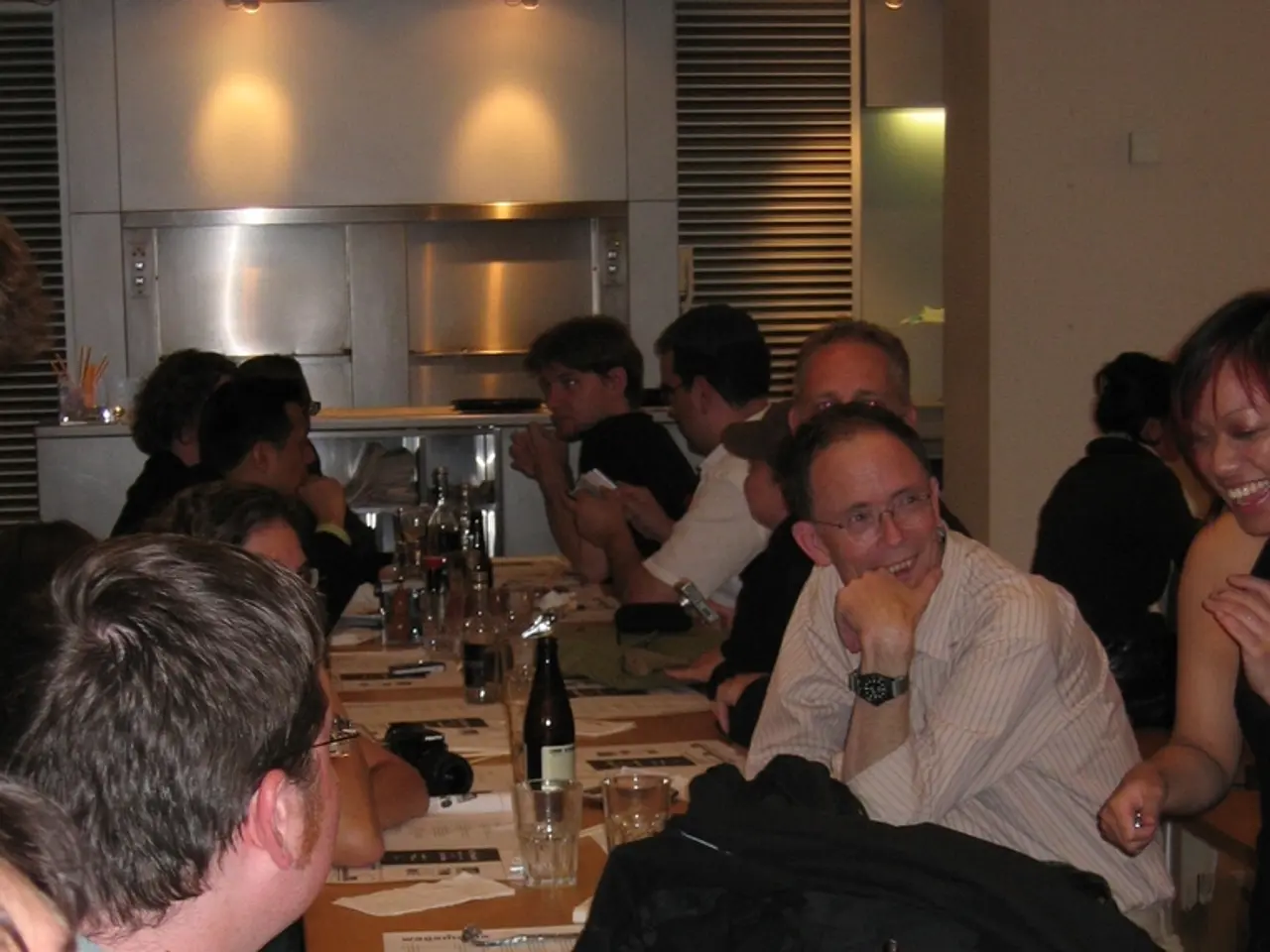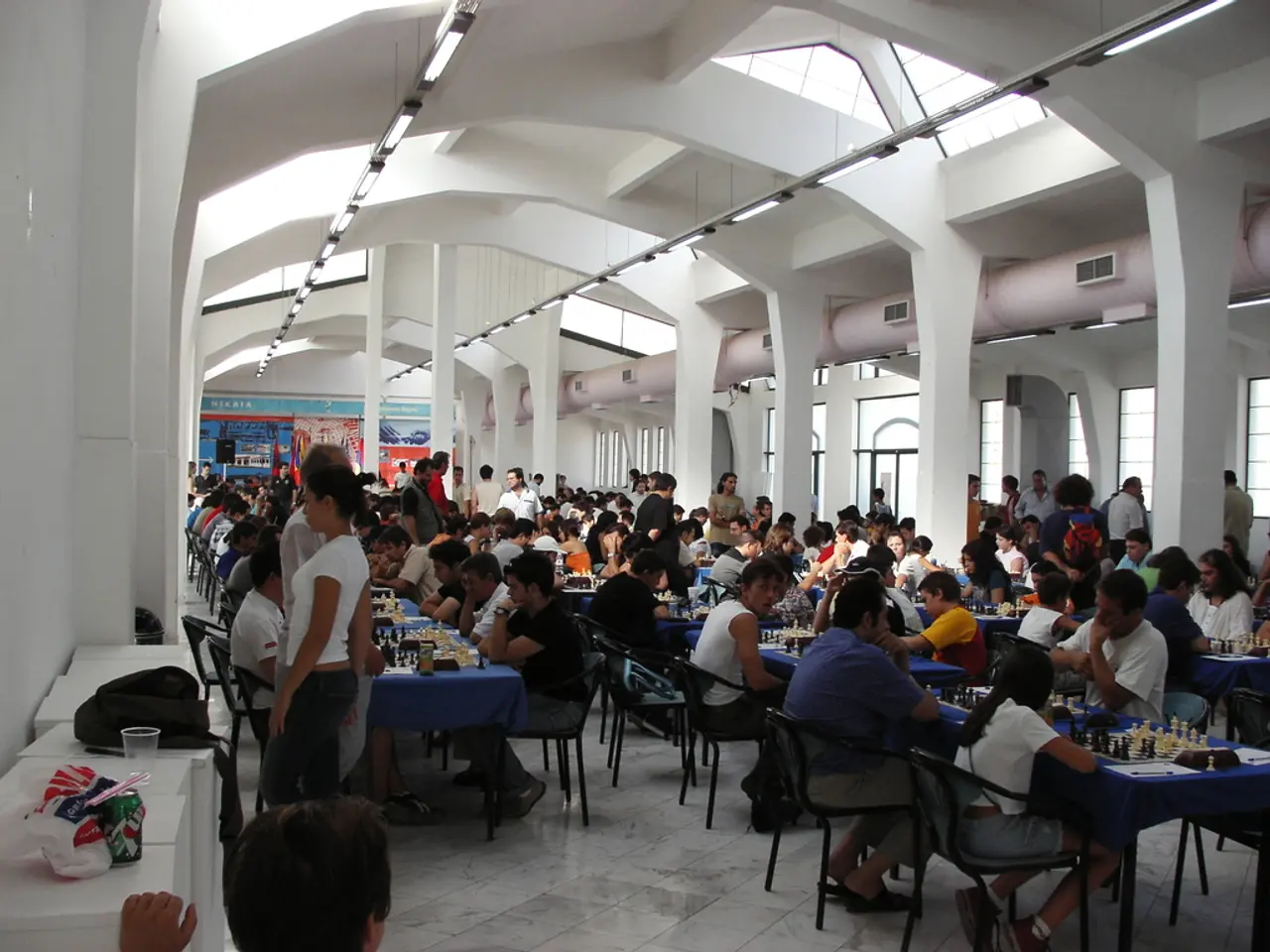New Leadership Takes the Helm: Reichinnek and Pellmann Elected as Left Party Chairs
Left-Party Faction Officially Installs Reichinnek and Pellmann as Chairman Positions - Left Group Officially Installs Reichinnek and Pellmann as Chairs
In the aftermath of the 2025 German federal election, shifts in political power are underway. With the CDU/CSU alliance securing the largest number of votes but falling short of a majority, coalitions are up for grabs. A notable occurrence has been the resurgence of the Left party, with Reichinnek and Pellmann at the helm, after their temporary stint as faction chairs post-election.
Both Reichinnek and Pellmann initially assumed their roles on an interim basis, working diligently to establish the foundations for the faction and plan for the organizational structure. Recently, they secured permanent positions, with Ina Latendorf stepping into the role of First Parliamentary Managing Director. With 87.9% of the votes, she succeeded the Left politician Christian Görke effortlessly.
### The 2025 Federal Election
The 2025 German federal election was a historic event, marking significant changes in the political landscape. Although the CDU/CSU alliance emerged as the largest group in the Bundestag with 28.5% of the votes, securing around 199-201 seats, they faltered in reaching a majority.
Meanwhile, the far-right Alternative for Germany (AfD) experienced a massive boost, doubling its share to 20.8% and securing approximately 167 seats, making them the main opposition. However, due to their controversial reputation, no other party expressed a willingness to cooperate with them.
The socialist Left party (Die Linke) capitalized on voter dissatisfaction with the Social Democrats and Greens, securing 64-70 seats and 8.8% of the vote—their best result since 2017. Their success in direct constituencies, including some in Berlin and former West, signaled a promising future for the party.
The Sahra Wagenknecht Alliance (BSW), a populist splinter from the Left, narrowly missed out on entering the Bundestag, falling just under the 5% threshold at 4.98%. This defeat marked a challenging period for the Alliance.
The Social Democrats (SPD) and Greens experienced voter defections, with many turning to Die Linke and minor parties. In terms of seats, the SPD had around 109 seats, Greens approximately 83-84 seats, and the SPD and Greens both lost ground compared to their previous election results.
To form a majority in the Bundestag, at least 316 seats are required. The election results suggest a fragmented political landscape with the Left party on a rebound, posing interesting challenges for coalition formation.
The Commission, given its expertise in policy-and-legislation, may have been consulted on the draft budget for the financial year 2000, especially considering the pressing political matters arising from the 2025 Federal Election. The rise of the Left party, under the leadership of Reichinnek and Pellmann, has become an intriguing factor in the politics of general-news, adding complexity to the coalition formation process.






